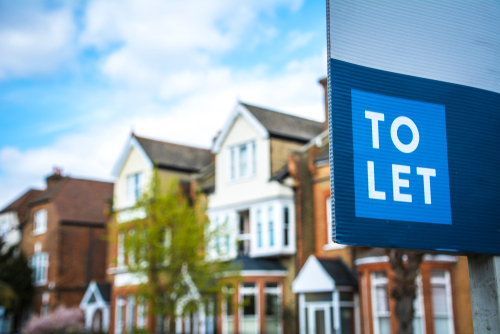Renting out a property and collecting rent cheques might seem easy. That’s because most of the heavy lifting happens behind the scenes. In fact, the most critical part of renting a property happens before the first tenants move in.
If you invest wisely and prepare your home properly in the beginning, you will earn more money and deal with less hassle for years to come. If you don’t, your property may become a time-consuming liability, and you may even find yourself in legal trouble.
It doesn’t have to be difficult to rent out your first property, but the first steps are critical. Below, you’ll find the most important tips for new landlords.
Understand Your Legal Obligations
To stay out of legal trouble, you must understand your basic legal obligations as a landlord. Most of these rules relate to the safety and security of your tenants. But there are also financial requirements related to rent and security deposits. In some areas, landlords are even required to be licensed.
It’s never safe to assume you know how to be a good landlord. Even small issues can violate the law, such as uneven stairs or a mouldy pantry. If tenants become unhappy, they can seek a rent repayment order, which would require you to pay back up to a year’s rent. Even if your tenants love you, the town council can also inspect your property and fine you if it’s not up to code.
Maintaining a safe and comfortable space for your tenants is your most important job as a landlord, so don’t take your legal obligations lightly. Learn more about the legal requirements for landlords here.
Don’t Put Off Maintenance
You may want to start earning some income on your property before tackling costly repairs, but this is not a good idea.
Putting off repairs will lower the value of your rental property, and in turn, this will affect the rent price and the quality of tenants. Unresolved issues also tend to worsen over time, meaning you’ll pay less to do repairs now than you would in a few months’ time.
Lastly, maintenance is much harder to schedule and complete when tenants are living in the space. You need to work around their schedules, which can lead to costly delays and conflicts.
Get Landlord’s Insurance

You’ve got home insurance already. Why do you need landlord’s insurance? Your home insurance does not cover rental activities, including any damage or theft that occurs while tenants are living in the house.
Landlord’s insurance will extend your home coverage to include rental activities. It’s absolutely essential for landlords to get covered before seeking tenants. If you are paying a mortgage on your property, your lender may require you to get landlord’s insurance, so make sure to check the terms with your bank.
Renovate to Earn More
You’ve just bought your first property and you have yet to decide on a rental price. What would you invest now if it meant you could earn an extra £200-£300 per month? This is your opportunity to perform renovations that don’t cost you much but are highly valued by tenants.
Tenants love modern appliances in kitchens, luxurious baths, big TVs and gardens fit for socializing. So, while buying new appliances and putting a patio in the garden may cost you an extra £6000, you’ll make that money back in 1-2 years. And after that, you’ll enjoy higher profits in the long term.
Vet Tenants Carefully
Tenants can be a huge unknow quantity in your rental situation. It’s hard to predict if a tenant will be respectful and responsible or if they’ll cause constant issues. However, the more you vet potential tenants, the more likely you are to find the good eggs.
Tenants should be required to fill out a rental application that requests basic information and consent to do a credit check and background check. Make sure to ask for references as well—from previous landlords, if possible. If not, from employers (not family and friends).
If a tenant seems like a good fit, meet them in person to discuss the terms of the rental agreement. If a tenant sees that you are serious about the terms, they’ll be more likely to follow through on them.
But remember that being serious is not the same as being strict. Be willing to amend the terms of the agreement to suit your tenants. That’s how you build strong relationships.
Work Hard Now, Earn More Later
When renting your first property, you have a choice. You can take it easy now and work more hours per week in the years to come. Or, you can work hard (and invest hard) now and earn more money with less work in the long term. For most new landlords, the choice is an easy one. By following the tips above, you’ll accomplish the hard work today and set yourself up for smooth sailing tomorrow.